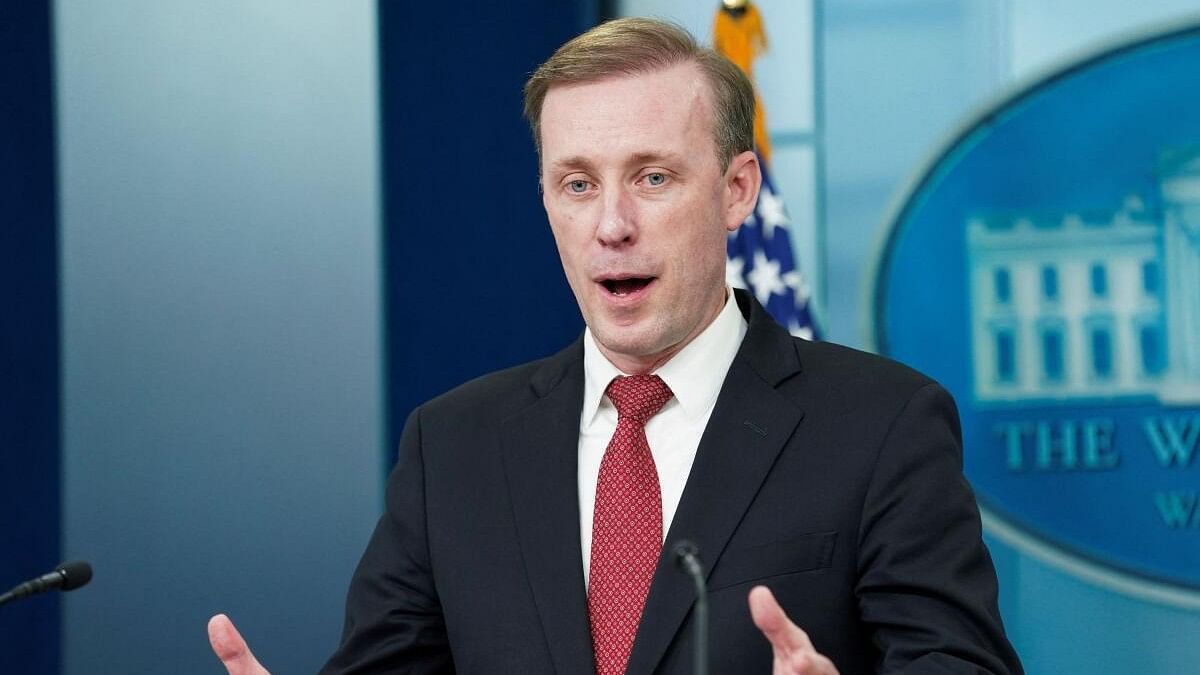
White House National Security Advisor Jake Sullivan
Credit: Reuters Photo
Washington: US National Security Advisor Jake Sullivan will travel to India next week to “compare notes on the Indo-Pacific,” talk about technology cooperation and also meet his counterpart Ajit Doval and others to take the US-India relationship to the next level.
Sullivan is likely to meet Doval for the annual review meeting for the initiative on critical and emerging technologies (iCET) that was postponed due to the cancellation of his visit in February due to other global commitments.
The India visit by a close Biden aide comes soon after Foreign Secretary Vinay Kwatra who is in the US for a series of meetings with senior officials from the US government and interacting with industry leaders to advance bilateral cooperation in areas such as defence and technology.
Sullivan would be in India next week “to celebrate elements of our bilateral relationship, compare notes on the Indo-Pacific, and also talk about the next steps in technology cooperation. We think these are all effective, prudent elements of taking the US-India relationship to the next level,” a senior White House administration official said without announcing the date of his visit.
He was addressing a background press call on Wednesday, previewing the official visit of Japanese Prime Minister Kishida Fumio, who is on a US trip beginning April 9.
The senior administration official was asked how the US was thinking of India within the context of the deepening military, defence, and security partnership that it has with treaty allies in East Asia and if the US looks at India as part of this network.
“I think if you ask the President, one of the things that he’s proudest of is his efforts to build a stronger relationship between the United States and India. And I do believe, both in the Indo-Pacific and the Indian Ocean and on key issues like technology, the United States and India are working more closely together than ever before,” the official said.
“And I would simply say that I think the US-India relationship is trending substantially in a positive direction and that our level of engagement across every possible vector — security, intelligence, technology, people-to-people — has excelled,” he added.
Incidentally, US Defence Secretary Lloyd Austin has told lawmakers that by bolstering the Indian military's capabilities, the two nations can work together to uphold a more stable balance of power across the wider Indo-Pacific region.
He also told members of the Senate Armed Services Committee during a Congressional hearing this week on the annual budget of the Department of Defence that the militaries of the US and India are accelerating operational activities to boost maritime security in the Indian Ocean.
On Wednesday, the senior administration official further said, “Not only have our relations with India improved in a bilateral context, but it is also the case that India’s partnership with other countries, working with us and then working just independently, has also stepped up substantially. I would say, in many respects, engagement with India is some of the most — the most desired kinds of engagements on the global stage, and we’ve seen this with a variety of key players.” The official admitted that in the past, “on both sides, there perhaps had been some ambivalence or some uncertainty. I see very little of that now.
“I see leaders on both sides who are all in on the promise and prospects of the other, recognise the potential of this relationship that is deeply supported by an activist diaspora community here, and technology and other firms who understand the potential of India,” he added.
“And I would just simply say that I see the engagement with India as central to everything that we’re seeking to do on the global stage. And I would simply say that I think, in many respects, it will be our most important bilateral partnership heading into the latter parts of the 21st century,” PTI NPK AKJ NPK NPK